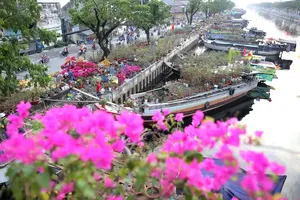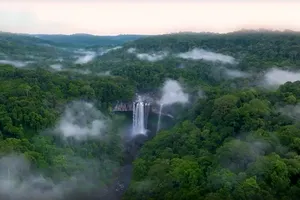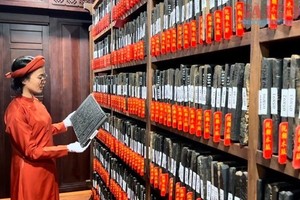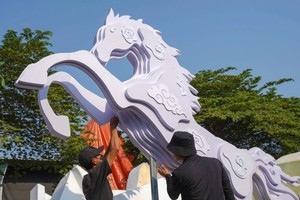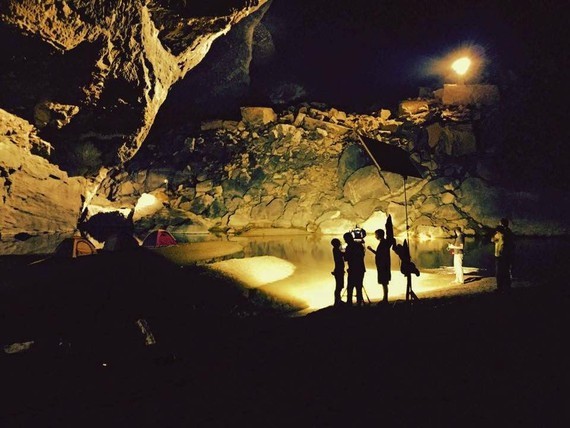 The film crew has arrived in Quang Binh to shoot scenes of the magical and magnificent stalactite system and longest water cave of the national park.
The film crew has arrived in Quang Binh to shoot scenes of the magical and magnificent stalactite system and longest water cave of the national park.
The film crew has arrived in Quang Binh to shoot scenes of the magical and magnificent stalactite system and longest water cave of the national park and its ecological system and biodiversity.
Film producer Theo Thomas Webb expressed this thanks to the competent deaprtments and local authorities for supporting them with the filming. Members of the film crew were mazed by the natural beauty of the caves, primitive forests with the diverse and unique ecosystem of Phong Nha –Ke Bang.
Vice Chairman of the People’s Committee of Quang Binh Province Ho An Phong said that the province will create favorable conditions for film crews, local and international press agencies to produce movies promoting the UNESCO World Heritage Site and Quang Binh’s people.
The film is expected to be broadcast in the fourth quarter of this year.
The BBC Studios Natural History Unit (NHU) is a department of BBC Studios that produces television, radio and online content with a natural history or wildlife theme. It is best known for its highly regarded nature documentaries, including The Blue Planet and Planet Earth.
Phong Nha-Ke Bang National Park in the central province of Quang Binh is one of the most spectacular wilderness sites in South East Asia and one of the 2 largest limestone regions in the world. It was recognized as a World Heritage site for the second time for its ecological system and biodiversity at the 39th session of the World Heritage Committee in Bonn, Germany in 2015. The first time was in 2003 for its geological and geomorphologic values. It is home of more than magnificent 300 caves and ranks among the most popular tourist destinations in Vietnam, including the world's largest cave, Son Doong; the world's 3rd largest cave, En cave; and the longest dry cave in Asia, Thien Duong (Paradise) Cave.
Scientists estimate that Phong Nha-Ke Bang and adjacent areas are home to over 1,000 caves. There are more than 600 caves that still remain unrevealed. Artificial intelligence (AI) will be applied to discover caves and digitize the entire cave system for scientific study and tourism development, said the director of Phong Nha-Ke Bang National Park.


